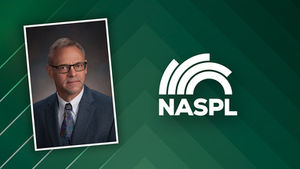Virginia Governor Amends ‘Skill Games’ Legislation
- Insights Press
- Apr 10, 2024
- 3 min read
RICHMOND, Va. (April 9, 2024) – Virginia Gov. Glenn Youngkin has proposed a rewrite of legislation intended to legalize and tax skill games, adding stiff new restrictions that industry supporters argued would still amount to a de facto ban of the slots-like gambling machines hosted by small businesses.
The governor put forward amendments late Monday that overhaul a measure the General Assembly sent him in March, calling for a higher tax rate on the receipts from the machines, and a provision allowing localities to prohibit them. The proposed changes also add placement restrictions on the arcade-style games, banning them within about a half-mile of churches, day cares and houses of worship, and seemingly excluding them in many metro areas that already host a gambling establishment.
While skill-games supporters vowed to fight the proposed changes, Youngkin spokesman Christian Martinez said in a statement “the added protections” the governor is seeking address “serious concerns with the regulatory structure, tax rates, the number of machines, impact on the Virginia Lottery and broader public safety implications” of the legislation.
While skill-games supporters vowed to fight the proposed changes, Youngkin spokesman Christian Martinez said in a statement “the added protections” the governor is seeking address “serious concerns with the regulatory structure, tax rates, the number of machines, impact on the Virginia Lottery and broader public safety implications” of the legislation.
The skill-games bill was one of dozens Youngkin took action on late Monday, as he ran up against a deadline to complete work on measures sent to his desk during the regular session that ended March 9.
Of the 1,046 bills sent to him this year by the Democratic-controlled General Assembly, he signed a total of 777, amended 116 — including the state budget — and vetoed 153, his office said. Youngkin has vetoed more bills in this year alone than any of his seven immediate predecessors did over their entire four-year terms, according to an accounting by the nonpartisan Virginia Public Access Project.
Lawmakers will reconvene in Richmond next week to consider his amendments. They could also attempt to override his vetoes, though Democrats would need Republicans to join with them to reach the necessary 2/3 vote threshold.
The skill games debate is a rare issue that has not fallen along partisan lines. A coalition formed to push for legalization this year centered the voices of the small-business owners who hosted the machines in establishments like gas stations and restaurants and shared in their profits before a ban first passed in 2020 took effect.
Rich Kelly, a restaurant owner and the president of the coalition, said in a statement Monday that Youngkin’s amendments were “devastating” and would effectively ban the machines by prohibiting them within within 35 miles of any casino, racetrack or gambling “satellite facility.” Virginia has casinos in Bristol, Danville and Portsmouth, and allows wagers on live horse races and another form of slots-like betting in historical horse race wagering parlors around the state.
Youngkin’s proposed tax rate — 35% according to the governor’s office — would also make skill games the highest taxed good in Virginia, Kelly said.
For years, policymakers in Virginia and around the country have been grappling with how to regulate the machines, which look similar to slot machines but involve an element of skill, their manufacturers say.
For years, policymakers in Virginia and around the country have been grappling with how to regulate the machines, which look similar to slot machines but involve an element of skill, their manufacturers say. Virginia lawmakers first voted to ban skill games in 2020 as they were opening the door to casinos.
Operators got a reprieve after then-Gov. Ralph Northam asked lawmakers to delay the ban by a year and instead tax the machines and use the revenue for COVID-19 relief. The ban took effect in July 2021 but was challenged in court and put on hold for a while amid that fight.
Bill sponsor Aaron Rouse, a Democratic senator from Virginia Beach, said in a statement that he would work to block Youngkin’s amendments and “do everything possible to make the interests of small businesses – not casinos or massive out-of-state corporations – a priority.”
A coalition opposing skill game legalization that counts the state’s casinos among its members said in a statement that it was still reviewing the amendments but it appreciated the governor’s “more thoughtful approach” to a measure that would have “led to an unprecedented expansion of gambling in Virginia.”
If both legislative chambers agree to Youngkin’s entire set of amendments when they meet next week, the bill as amended would become law. If lawmakers only accept certain amendments, the bill would be returned to Youngkin, who could either sign or veto it.



















